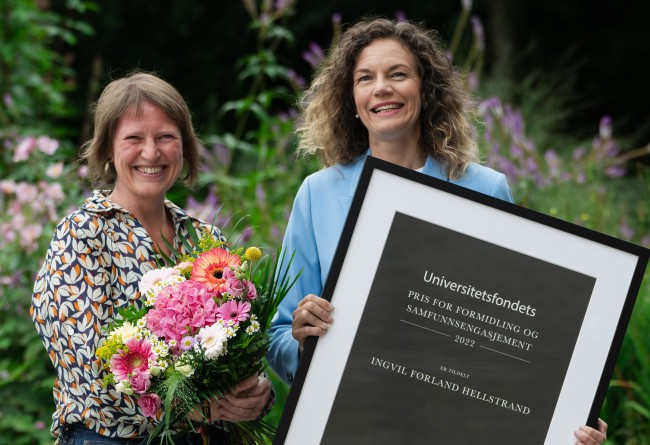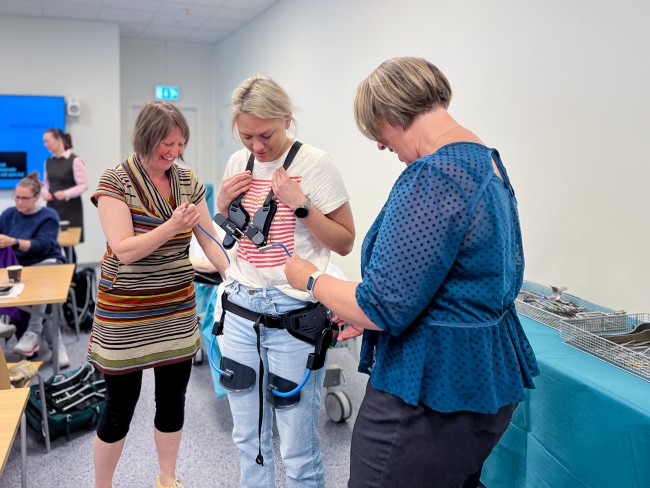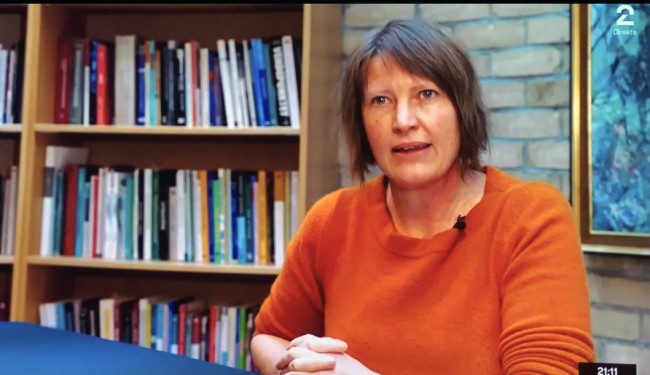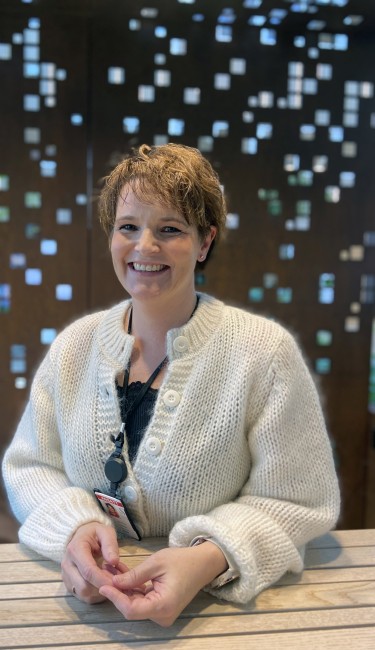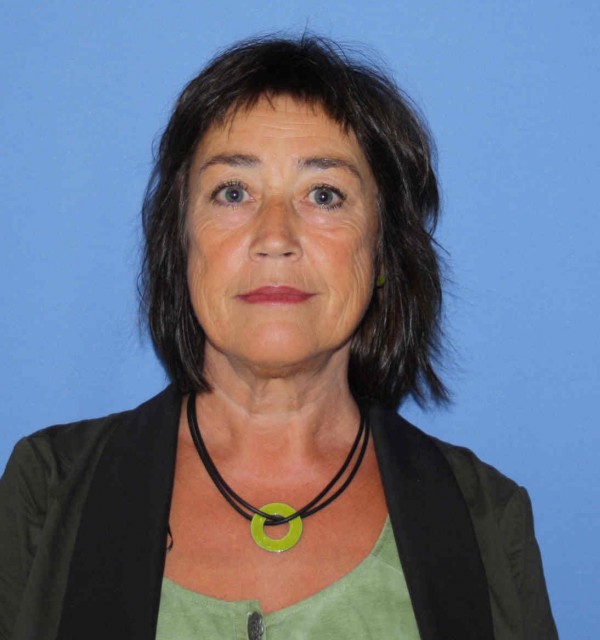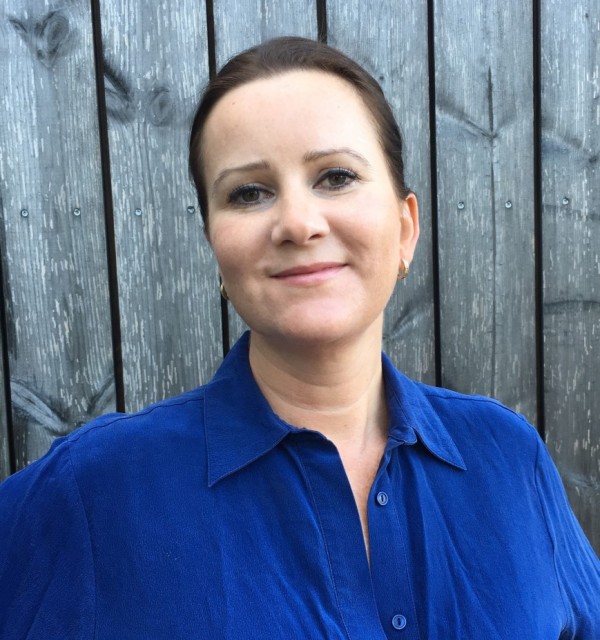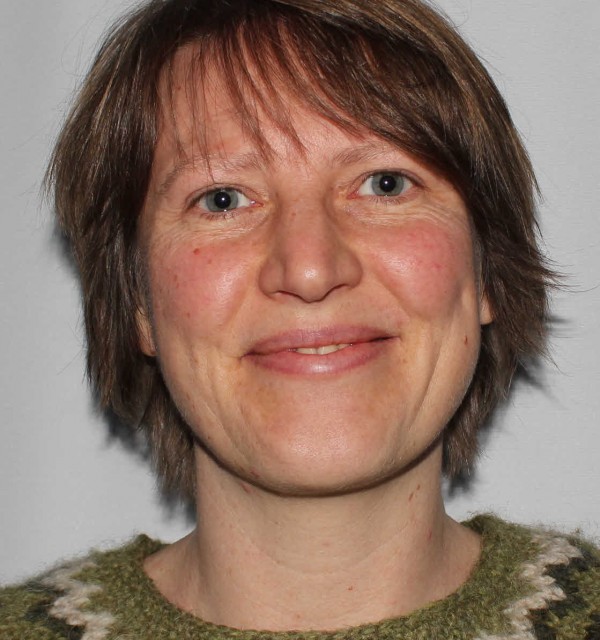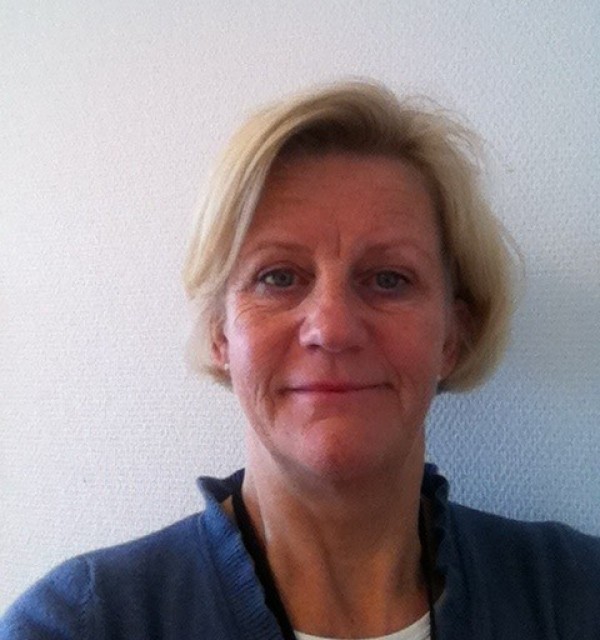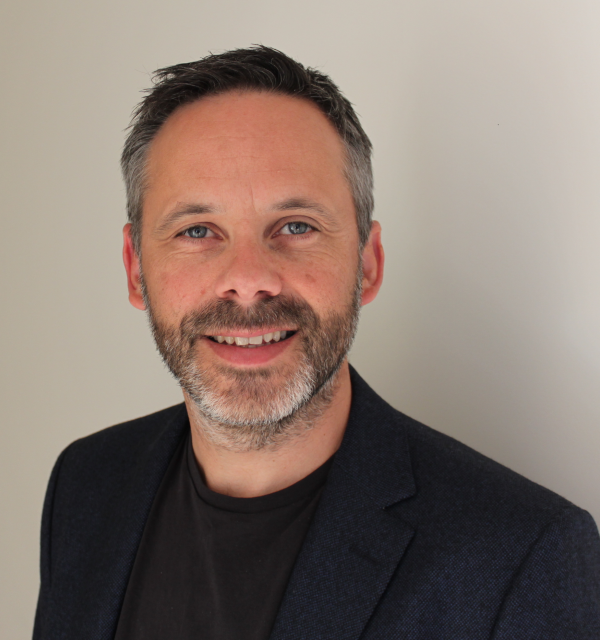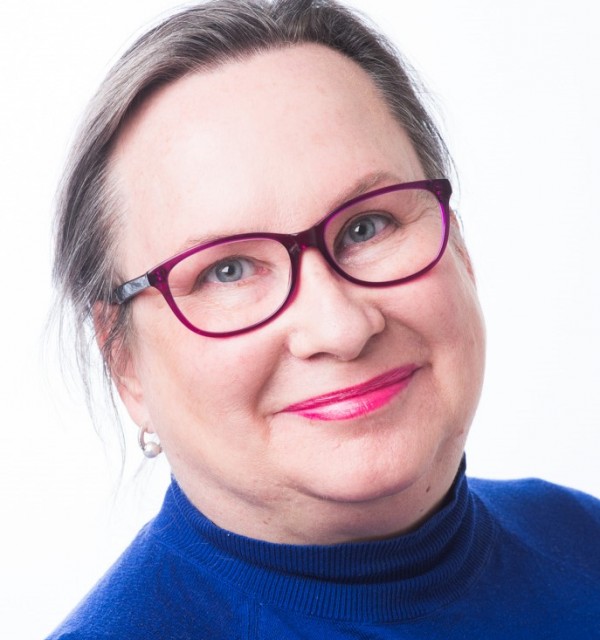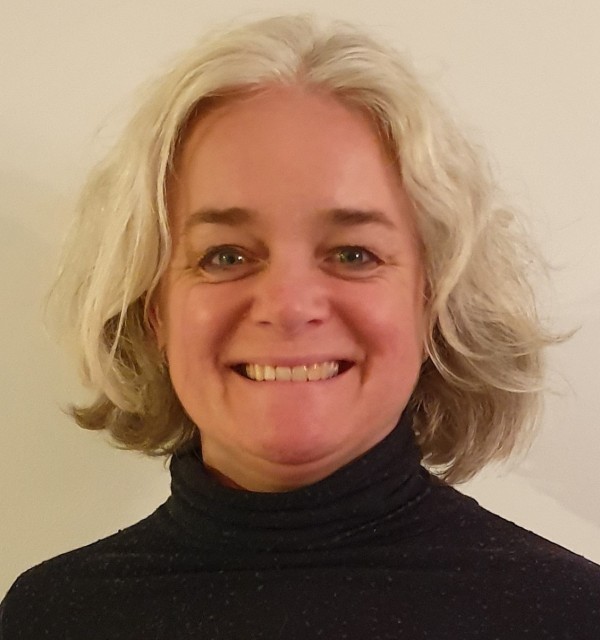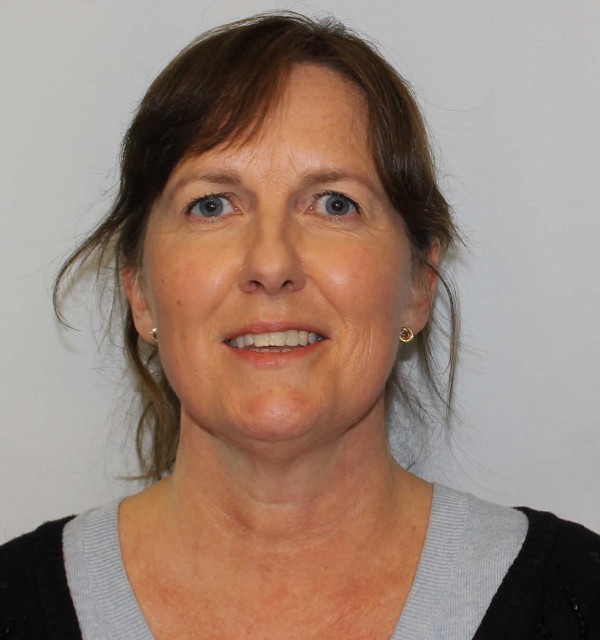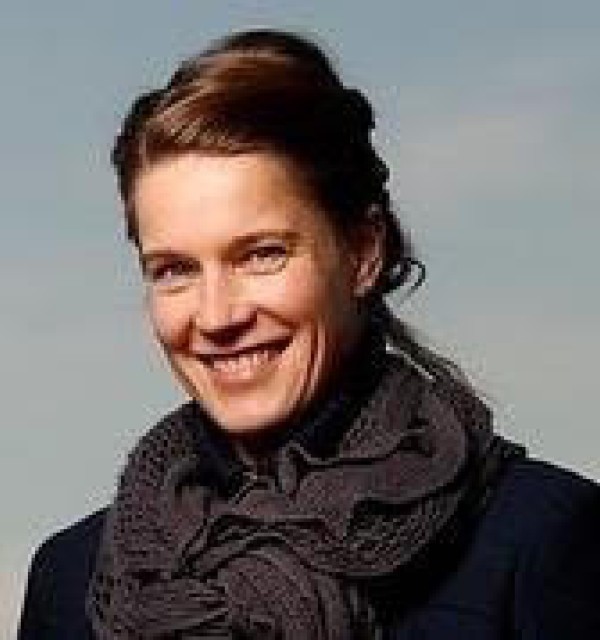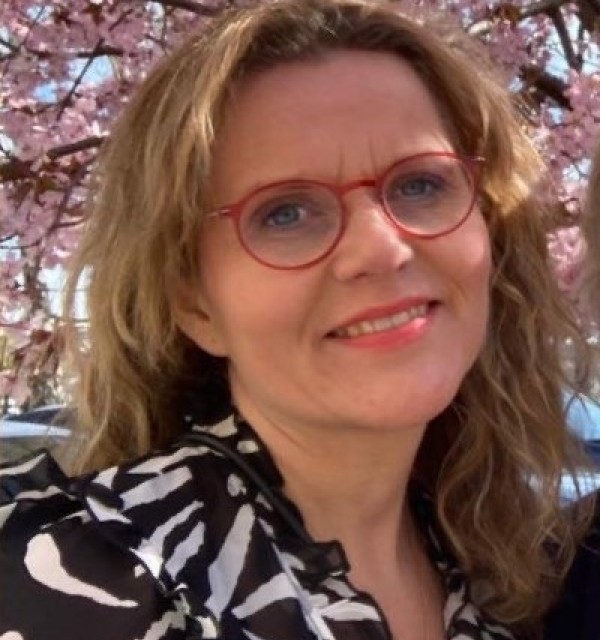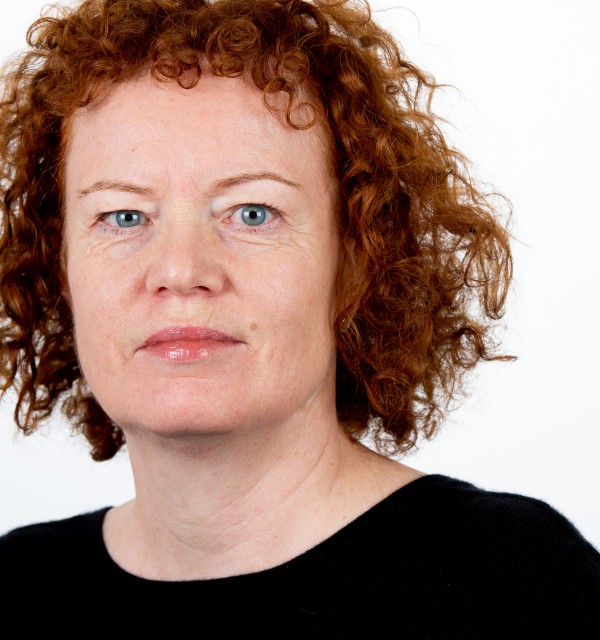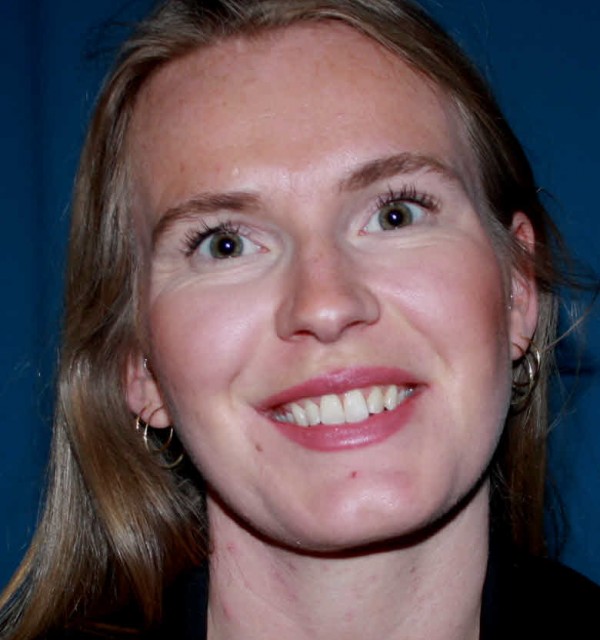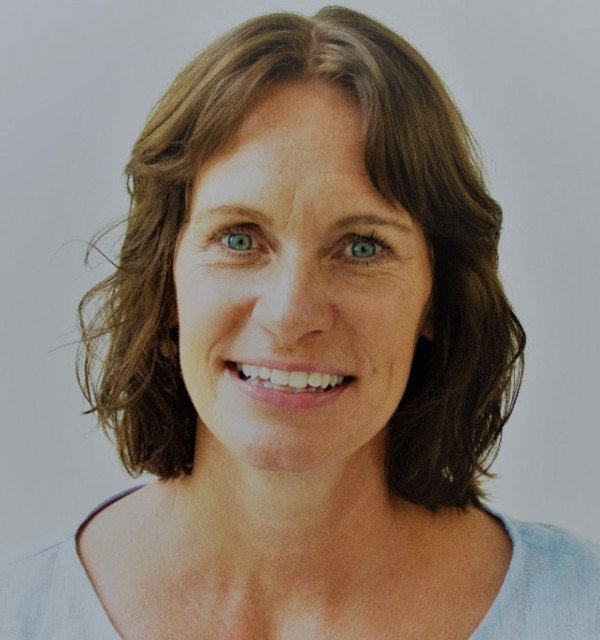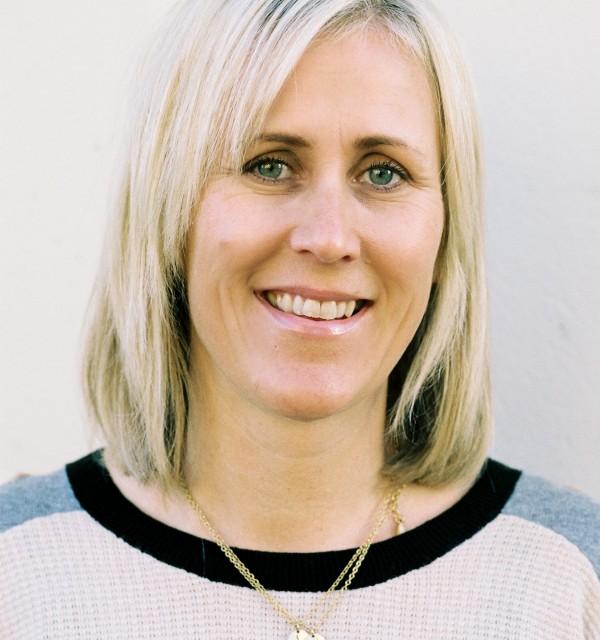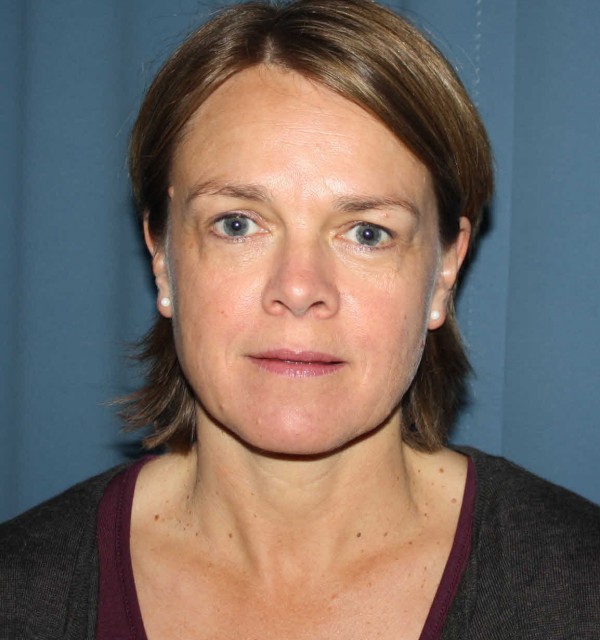The aim of our interdisciplinary research is to develop new knowledge of relational work in health and welfare professions such as nursing, medicine, and social work.
Professional identity, prof. development, and reflective practices
22
4
10
2022-2024
About our research
From an experience-near perspective, we research encounters between healthcare and welfare users and professionals. Our emphasis is often on emotional experience as an integral aspect of such professional relationships.
In order to establish a therapeutic alliance, care workers rely on use of self as part of their relational work. However, although use of self is a crucial resource, this reliance on personal qualities, capacities and feelings may at times come into tension with professionalism. We therefore seek to gain a more sophisticated understanding of what strengthens the growth of the professionals and their capacity to care. This includes knowledge about care of self, reflective practice and other elements that may prevent moral distress, high-turnover rates, stagnation and burnout among healthcare and welfare workers for whom relationships with other people constitute a key part of the professional role.
From a broader perspective, our research is also concerned with how national and international welfare policy, institutional procedures, structures and new technology may influence the ways in which professionals enter into, and sustain, caring, developmental and health promoting professional relationships. This requires an understanding of the correlation between intra- and interpersonal, institutional and societal dimensions that we find in psycho-social approaches.
Ethics and care are an inextricable couple and therefore a key aspect of professional relational practice – constituting a crucial strand in our research.
News and activities
News from Caring Futures
Ingvil Hellstrand Wins Award for Dissemination and Societal engagement
The UiS researcher moves elegantly between equal opportunities and gender diversity, welfare and caring sciences researc...
Reducing nurses’ workload with exoskeletons
Students and researchers at UiS are convinced that exoskeletons can be a useful aid for operating room nurses during lon...
The Caring Futures project on TV2 News
Researchers from “Caring Futures: Developing Care Ethics for Technology-Mediated Care Practices” were interviewed and qu...
Research projects
Listed below is a brief presentation of ongoing research projects associated with the research group.
Caring Futures: Developing Care Ethics for Technology-Mediated Care Practices
The interdisciplinary research project Caring Futures: Developing Care Ethics for Technology-Mediated Care Practices (QUALITECH) aims to develop new care ethics in an increasingly technological health and welfare sector. Our principal research question is: how can technology-mediated care practices become care-ethically sound – and, correspondingly, how can care ethics become more technology-aware?

We have identified a discrepancy between society’s drive for new technology that is care-ethically ignorant – and an absence of technology-awareness within care ethical theory. The research project QUALITECH addresses this knowledge-deficit in order to secure quality care in a future with increasingly technology-mediated caring practices.
Increased efficiency and innovation are often presented as solutions to these new demands. The development and use of new technology are central aspects of these solutions. However, the evidence on ethical implications of technological innovation in current technology-mediated care practices is scarce. QUALITECH therefore revisits care ethics in practice- and experience-near contexts, at a time of changing health, care and welfare policies, services and practices. The project consists of four work-packages:
- Digital assessment templates in the child welfare services (WP Lead Åse Vagli, Institute for social work, Faculty of Social Sciences, UiS)
- Professionals’ ideals and sense of self in technology-mediated care practices (WP Lead Birgitta Haga Gripsrud, Department of care and ethics, Faculty of Health Sciences, UiS)
- The impact of robots and other caregiving techno-bodies on agency and quality of care (WP Lead Ingvil Hellstrand, Centre for Gender Studies, Faculty of Social Sciences, UiS)
- Management, design and implementation of technology in care practices (WP Lead Brita Gjerstad, Institute for social work, Faculty of Social Sciences, UiS)
Funding: 12 million from the Norwegian Research Council (HELSEVEL)
Project manager: Ellen Ramvi, Department of care and ethics, Faculty of Health Sciences, UiS
Project period: 2020 - 2024
Find more information about the project at Norwegian Research Council's webpage
The infant's voice - user participation and infants
In this project the main aim is to procure knowledge about the concept user participation applied on infants. In todays’ society users have a right to contribute to the services they receive and take part in. Likewise – the services are obliged to engage their users. The concept of user participation is though not straight forward when the users are infants. How can infants contribute on the services they take part in? To what extent is the concept perceived as relevant used on infants? What different kinds of thinking is this concept founded in?

A qualitative study through interviews
In this project we aim to gather data about this topic doing about 15 semi structured qualitative interviews with representatives with three groups that we suppose have an impact on the opinion about this concepts in the Norwegian society today – the applicability of the concept on user participation as an ideal in meeting and working with infants: 1) employees in services that implies meeting infants: health nurses, midwives and teachers in kindergartens, 2) employees in colleges and universities teaching representatives for these three groups about topics on infants, 3) employees at colleges and universities that teaches representatives for these three groups on the concept of use participation.
Investigators
Principal Investigator: Postdoc Sissel Merete Finholt-Pedersen
Co-researchers:
- Ass. Professor Eystein Victor Våpenstad, Inland Norway University of Applied Sciences (INN), Department of Psychology
- Postdoc. Kristin Margrethe Briseid, University of Agder, The Department of Health and Nursing Science
Project period: 2021-
DIGIVEI: Learning Environment and Guidance in Municipal Practice
Testing a new model for strengthened collaboration between nursing Students, practice supervisors, and practice teachers.
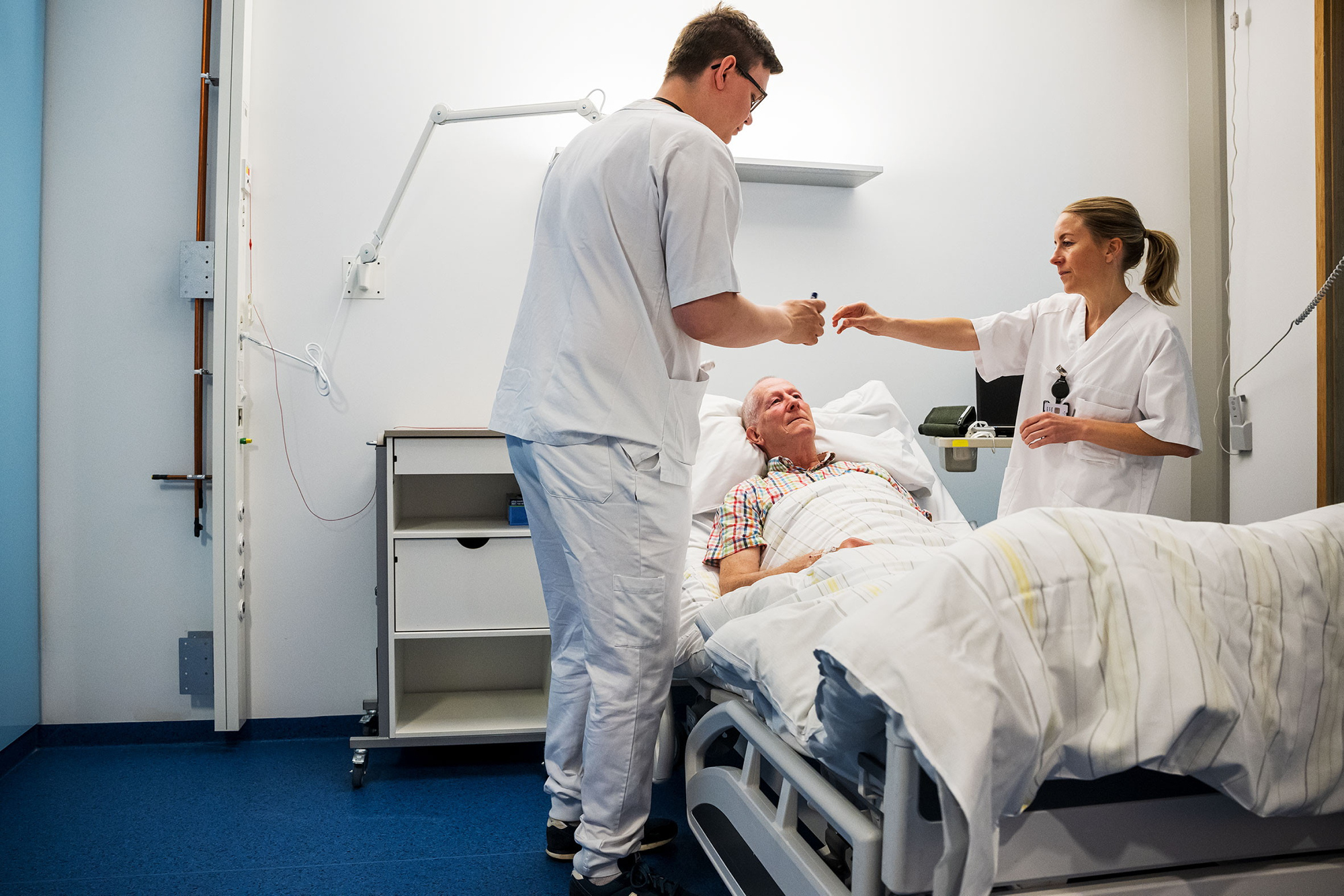
Project owner: University of Agder (UoA)
Role: Andrea Nes, Member of the project group, leader of work package 2. TOPP-N: Implementation of a new practice model and technology
Objective: Test a new model for organizing practice in nursing education
Project Leader: Kristine Haddeland, University of Agder (UoA)
Partners: Lovisenberg Diaconal University College, Åmli, Kristiansand, Arendal, and Flekkefjord municipalities
Project funded by: HK-dir, NOK 6.5 million
Project period: January 2020 - December 2024
Developing a nurse-led outpatient clinic to male caregivers using a bottom-up approach
This project generates new knowledge on the needs of male caregivers of women with gynecological cancer in Norway and to map available support services to optimize the use of existing healthcare resources.

Project owner: University of Oslo (UoO)
Role: Andrea Nes Member of the project group (Co-advisor of PhD student)
Objective: This project generates new knowledge on the needs of male caregivers of women with gynecological cancer in Norway and to map available support services to optimize the use of existing healthcare resources.
Project Leader: Kristina Lindemann, senior gynae-oncologist at the Department of Gynecological Oncology/OUH
Partners: VID, Uppsla University, Sweden, University of Stavanger (UoS) and Lovisenberg Diaconal University College
Project funded by: Stiftelsen DAM, NOK 1,5 mill
Project period: August 2024 - September 2026
Adaptation and Testing of Digital Home Monitoring for Palliative Cancer Patients
This project aims to develop and adapt a service for Digital Home Monitoring to support home-based cancer patients.
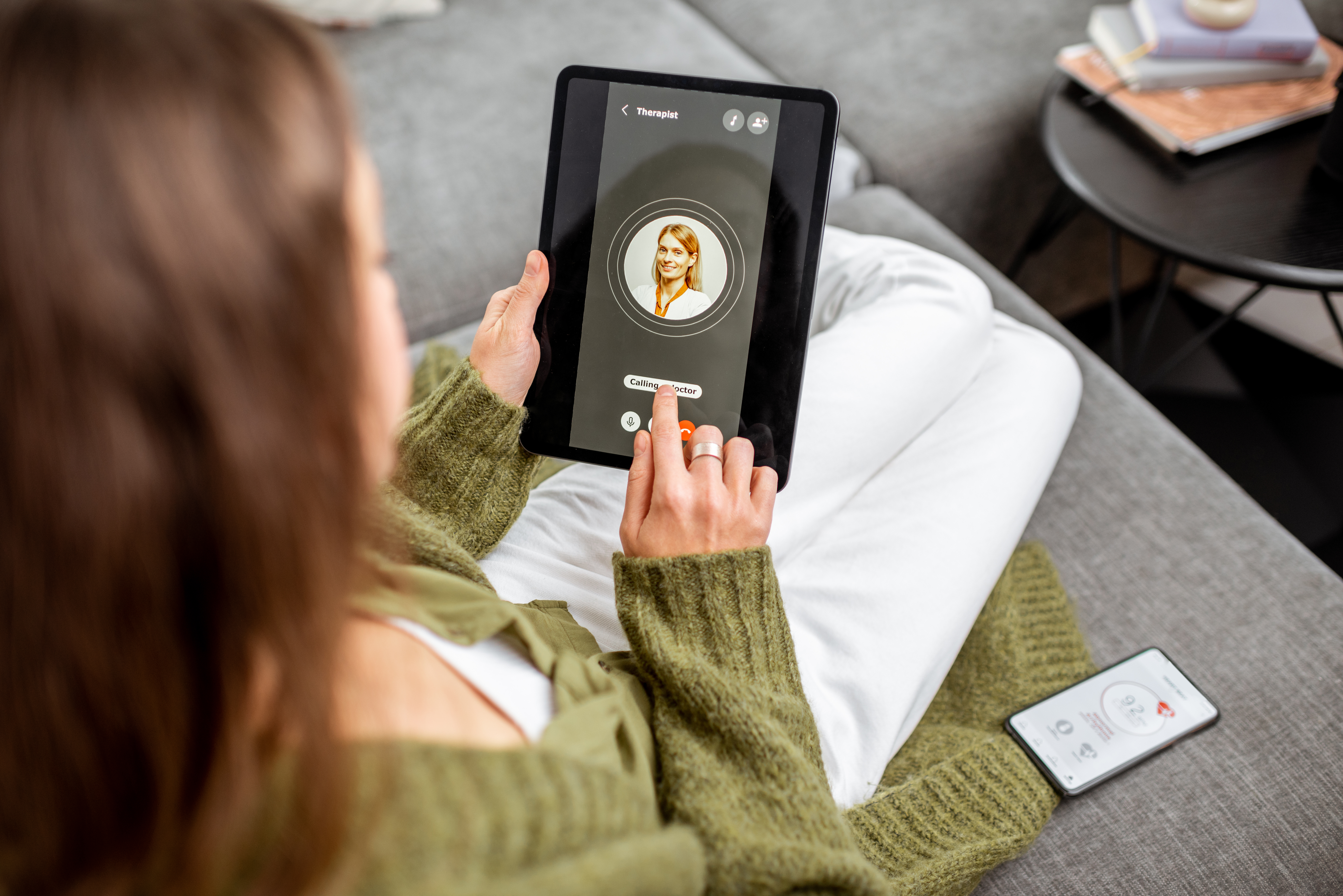
Project owner: VID Specialized University
Role: Andrea Nes, Member of the project group (Co-advisor of PhD student)
Objective: To develop and adapt a service for Digital Home Monitoring (DHO) to support home-based cancer patients, followed by an evaluation of the service's impact on quality of life, e-health competence, and the number of hospital admissions for home-based individuals with cancer.
Project Leader: Simen Aleksander Steintal, Professor at the Department of Gynecological Oncology/OUH
Partners: VID Specialized University, University of Oslo (UoO), University of Stavanger (UoS), University of Leeds (UK), and Lovisenberg Diaconal University College
Project funded by: Stiftelsen DAM, NOK 2.404 million
Project period: February 2025 - January 2028
Relational competence in mental healthcare
This study seeks to address this gap by exploring how relational competence is conceptualized within the context of mental healthcare.

The relationship between patients and mental health professionals is the cornerstone of all mental health treatment, and good patient-professional relationships are associated with several positive therapeutic outcomes for patients with mental health challenges. Mental health professionals’ relational competence is essential for high-quality services in mental healthcare. There is currently no unified understanding of the concept of relational competence. This study seeks to address this gap by exploring how relational competence is conceptualized within the context of mental healthcare.
Therapeutic relationships with persons with mental health challenges are central to mental health professionals’ practice. This places high demands on mental health professionals’ relational competence. An overview of pedagogical strategies to promote relational competence in higher mental health education is lacking and more knowledge is needed in this field. This part of the research project will examine the body of knowledge on how the development of relational competence can be promoted and hampered in higher mental health education, as well as to identify knowledge gaps in this field.
Principal Investigator: Lise Sæstad Beyene (Associate Professor at UiS)
Co- researchers: Elin Bolle Strand (Senior researcher at OUS and Professor at VID Specialized University), Helene Eidsmo Barder (Associate Professor at VID Specialized University), Aud Ragnhild Misund (Associate Professor at VID Specialized University), Trine Lise Brente (lecturer at VID Specialized University) & Hege Terese Størksen (Associate Professor at VID Specialized University).
Miriam Dubland Vikman (lecturer at VID Specialized University), Geir Tarje Fugleberg Bruaset (phd candidate at VID Specialized University), Marit Helene Hem (Head of research at NTNU Social Research and Professor at VID Specialized University), Elisabeth Andersen (lecturer at VID Specialized University) and Unn Elisabeth Hammervold (Associate Professor at UiS)
Medication-free treatment within mental health care
The aim of this study is to explore essential features of medication-free services in a milieu therapeutic context.

Medication-free treatment within mental health care aims to offer therapeutic support as an alternative to psychotropic medication.
This is an extension of the previous study Medication-free mental health treatment. A focus group study of milieu therapeutic settings (Beyene et al., 2023), which found that a holistic approach is necessary for medication-free treatment to succeed. Medication-free treatment in mental health care signifies a move towards person-centered care. Nonetheless, medication-free treatment is often implemented in hospital units that are grounded in medical paradigm values. It is important to explore the practice of medication-free service in hospital units based on values from a medical paradigm. The aim of this study is to explore essential features of medication-free services in a milieu therapeutic context.
Principal Investigator: Lise Sæstad Beyene (Associate Professor at UiS)
Co- researchers: Marit Helene Hem (Head of research at NTNU Social Research and Professor at VID Specialized University, Alain Topor (Professor at Stockhold University and University of Agder), Mads Kopperud (specialist in psychology at Lovisenberg Diakonale Hospital) & Elin Bolle Strand (Head of research at NTNU Social Research and Professor at VID Specialized University).
The significance of tangible memories after death of an infant
Little is known on how parents that receive memories after the death of an infant reflect upon this and what significance these memories have. The aim of this project is to explore the meaning of tangible memories.

Some parents experience grief due to death of their young infants. When this happen health proffesional are helping parents to make memories, such as photos, memory books, hand- and footprint. Parent support groups are also providing memory boxes, containing information and some objects. The function of memory making ca be understood as to create evidence of the infant’s life, but also to affirm parenthood. Anyway, little is known on how the parents that are receiving memories after the infant’s death reflect upon the memories and what significance these memories have. The aim is to explore what meaning tangible memories have.
The study has a qualitative, explorative design. The study was approved by the Norwegian Centre for Research Data (NSD). 20 parents agreed to share their experiences and three focus group interviews were conducted. They had experienced loss of infants from gestational age 20 weeks to 18 months. Their loss happened from approximately one month to 22 years ago. Thematic analysis according to Braun and Clarke (2006) will be used to identify, analyse and describe themes within the data.
Principal Investigator: Inger Emilie Værland, PhD, Stavanger University Hospital
Co-researcher: Anne Beth Gilja Johansen, cand. theol., Stavanger University Hospital, and Marta Høyland Lavik, professor, Stavanger University Hospital and University of Stavanger
Project period: May 2022 - May 2023
The Life Sheet: The use of personal life stories in care work
Knowledge of a person's life history is important for providing professional, individualized care. Patients' life stories, or Life Sheets, are short texts or overviews of a person's important life experiences and preferences. This project maps the use of patients’ personal life stories as part of care work practices in nursing homes in the Rogaland region.

The aim of the project is to gain new knowledge about how life stories are collected and how they are put to use in relational care practices. We are also concerned with what kinds of care ethical reflections professionals have when working with life stories.
Involved in the project are researchers and students at the University of Stavanger and the University of Agder, in collaboration with professionals in the health –and care sector in municipalities of Stavanger and Sandnes.
Principal Investigator: Ingvil Hellstrand
Practitioners of Coercion
This study will explore how health professionals working in mental health experience, describe and reflect upon patient encounters involving use of coercion. Part of the exploration will be how the health professional's moral judgements relate to the context in which she/he is situated.

The use of coercion within mental health care in Norway is under increased scrutiny. Despite common jurisdiction, attention has been brought to a variety of practices and different degrees of transparency among service providers in regard to use of coercive measures such as physical restraints, seclusion and involuntary medication.
This leaves pressing questions, key to this study: What informs the moral deliberation made prior to using coercion and how does the experience of using coercion inform the self-understanding of the professional and thus future decision-making processes pertaining to the use of coercive measures? These are questions pursued in the project, of direct relevance to the patient-care, and thus also for policy makers, educational institutions and employing organizations.
Through a hermeneutic-phenomenological approach, in-depth interviews in combination with expressive writing, the study will explore how health professionals working in mental health experience, describe and reflect upon patient encounters involving use of coercion. Part of the exploration will be how the health professional's moral judgements relate to the context(s) in which (s)he is situated.
Both those exercising coercion through physical restraint and involuntary medication (nurses, professionals without health profession) and those formally making the decisions (psychiatrists and specialists in psychology) are enrolled in the study. A consideration of these simultaneously has not been undertaken before, but is very much called for.
Principal Investigator: Associate Professor Kjetil Moen
Project period: 2018 -2023
Full project title: Practitioners of coercion. How use of coercion informs mental health care professionals and their practice
Fundamentals of Care (FoC)
The aim of the study is to introduce and evaluate the framework Fundamentals of Care in the clinic and in the guidance of nursing students.

Fundamentals of Care is a framework that involves actions on the part of the nurse that respect and focus on a person’s essential needs to ensure their physical and psychosocial wellbeing. These needs are met by developing a positive and trusting relationship with the person being cared for as well as their family/carers (Feo et al 2017). In this project we introduce this framework for nurses in the clinic. In addition, we test the framework when guiding nursing students in their clinical practice.
The aim of the study is to introduce and evaluate the framework Fundamentals of Care in the clinic and in the guidance of nursing student.
The project is a collaboration between University of Stavanger, Stavanger University Hospital, Aalborg University and University Hospital and The International Learning Collaborative.
Principal investigator: Ass Professor Kirsten Lode
Project period: 2019 -
Memory making as a ritual after death in the NICU
The aim of this project is to explore how memory making can be regarded as ritualization when an infant dies in the neonatal intensive care unit (NICU).

Some infants die shortly after birth, leaving their parents in grief. When parents leave the unit without their infant, some NICUs provide them with a scrapbook with photos of the infant, and with a box with items to help them memorizing the child. The scrapbooks are made by the nursing staff at the local NICU, whereas the boxes are made by a national parent support group.
These efforts of making of memories can be regarded as gathering an evidence of the infant’s short life and of parenthood. Further, such memory making can be regarded as ritualization; symbolic acts that create meaning and confirm affiliation. The study will explore how scrapbooks and boxes can be understood in terms of ritualization.
Focus group interviews will be performed with members of a parent support group who are responsible of making boxes to be handed out to parents, and with experienced nurses in the NICU who make scrapbooks to bereaved parents. Thematic analysis will be used to interpret the data.
Principal Investigator: Inger Emilie Værland, PhD, Stavanger University Hospital
Co-researchers: Anne Beth Gilja Johansen, cand. theol., Stavanger University Hospital and Marta Høyland Lavik, professor, Stavanger University Hospital and University of Stavanger
Jobbvinner
Jobbvinner is a national project which aims to increase the recruitment of nurses and health care professionals to municipal health and care services i Norway. The project is a collaboration between municipalities in Rogaland and student nurses and teachers at the university.
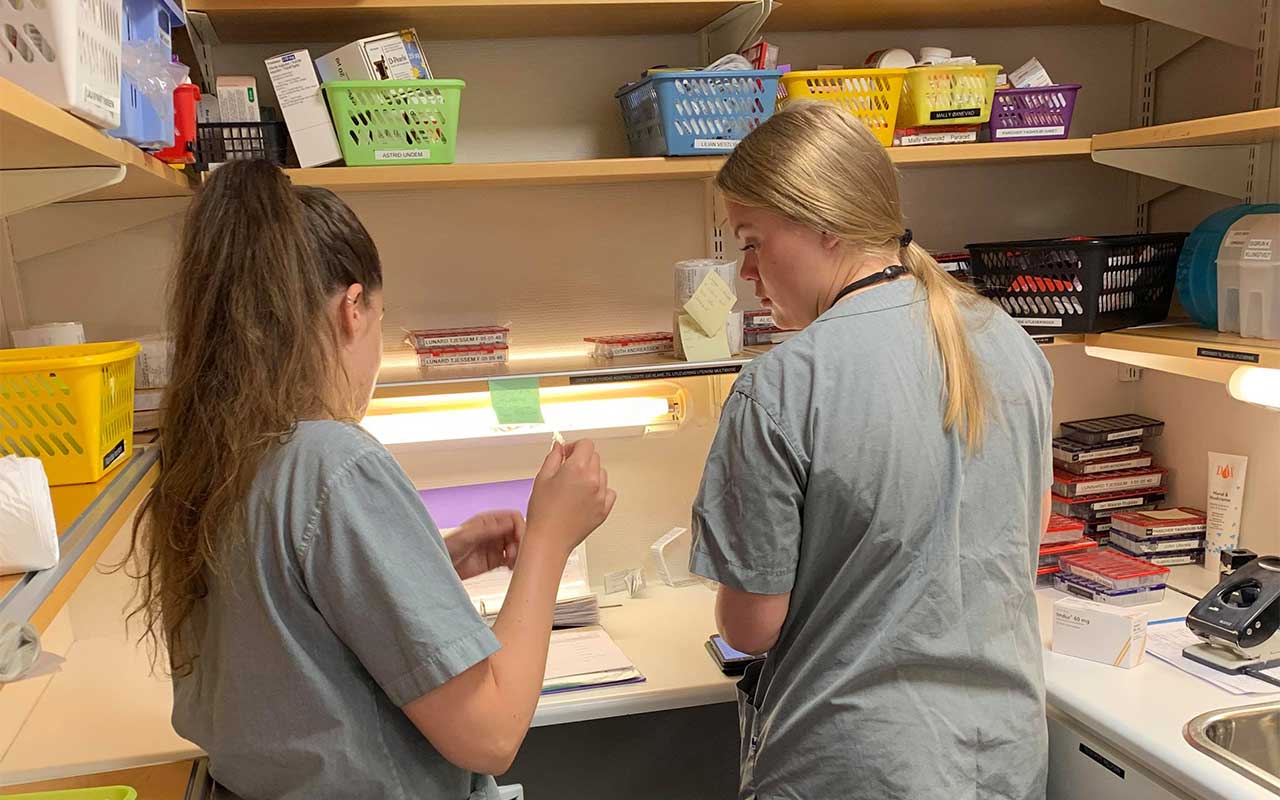
The Jobbvinner project develops recruitment measures for the municipal health care service in collaboration with municipalities and nursing educations.
Feedback from municipalities in Rogaland indicates that recruitment of nurses is most challenging. This project is one measure that seeks to ensure stable recruitment of staff in the health and care services.
Organization and management for nursing students
Recruitment of health care professionals and nurses in Rogaland is therefore the goal of a pilot where Hjelmeland, Sandnes and Strand municipality, the University of Stavanger and nursing unions participate. Surveys show that there is a connection between clinical placement during the studies and choice of workplace after finishing the degree.
We believe that nursing students who gain insight into community nursing and nursing homes as an organization will gain more knowledge about the complexity and challenges of this part of the service. The pilot will develop and test different measures in order to strengthen nursing students' competence in organization and management in all municipalities.
Funding: 700.000 NOK from Kommunenes organisasjon (KS)
Project manager in Rogaland: Malene Søiland
Project period: September 2019 - desember 2020
Multicultural workforce in nursing homes
The project Multicultural workforce in nursing homes (MULTICARE) is a large research project funded by the Research Council of Norway. The project investigates the development of, and work in, the municipal health and care services in Norway with a specific focus on work as an arena for integration and inclusion for immigrants.

Project title: «Multicultural workforce in Nursing Homes: Contemporary challenges, opportunities and potentials for the future in the Norwegian municipal care sector” (MULTICARE)
MULTICARE is a research project funded by the Research Council of Norway through the HELSEVEL program. The project is run by the Center for Care Research at the Western Norway University of Applied Sciences, and is a cross-sectorial and multi-disciplinary project with participant researchers from Center for Care Research, Uni Research Rokkan, University of Stavanger, Stavanger University Hospital and The Netherlands Institute for Health Service Research.
The MULTICARE project does research on the development of, and work in, the municipal health and care services in Norway with a specific focus on work as an arena for integration and inclusion for immigrants. The project will study the ways nursing homes organize care work, care services and their multicultural staff. Thus, it views nursing homes as valuable ethnographical case sites on which analyses of broader dynamics of inclusion, marginalization and social inequality in Norwegian society will be based.
Professional relations contributes with Work Package 4 (WP4), which explores communication of, and practices tied to, patient death in multicultural and multi-religious work communities. The following researchers are involved in WP4:
Principal Investigator (WP4): Professor Ellen Ramvi
Co-researcher: Professor Marta Høyland Lavik
PhD-Fellow: Anne Kristine Ådland
Project period: 2016 - 2020
From Bachelor to Master's – A Qualitative Study of Why Nurses Pursue Postgraduate Education
This research project aims to generate knowledge about nurses’ choices of postgraduate education.

Research shows that opportunities for challenges, varied experiences, and a desire to help others are fundamental reasons for nurses' choice of specialization. Additionally, salary, working hours, independence, and the significance of the workplace influence nurses' choices of workplace and specialization.
In Norway, various specializations are offered as postgraduate and master's education for nurses. A high number of applicants indicate nurses have a strong interest in further education. The purpose of this research project is to gain more knowledge about nurses' desires for postgraduate education. Insights from this study can increase understanding of nurses’ expectations and perceptions of completing postgraduate education and be relevant for developing professional identity.
Objective: This research project aims to generate knowledge about nurses’ choices of postgraduate education.
Collaboration: The project is led by Linda Horne Mæland, Associate Professor at UiS. Co-researchers are Lise Sæstad Beyene, Associate Professor at UiS, and Anette Sola Foss, Lecturer at UiS.
Progress: The project plans to start data collection in August 2024. We aim to have a scientific article ready for submission to a journal by the summer of 2025. The project is open to including other specializations within nursing, and a follow-up study within 10 years may be relevant.
Developing Nursing Students' Ability for Reflection
In this PhD-project, Bente Skogen investigates supervisors' and nursing students' experiences of developing the ability to reflect in their clinical nursing studies.
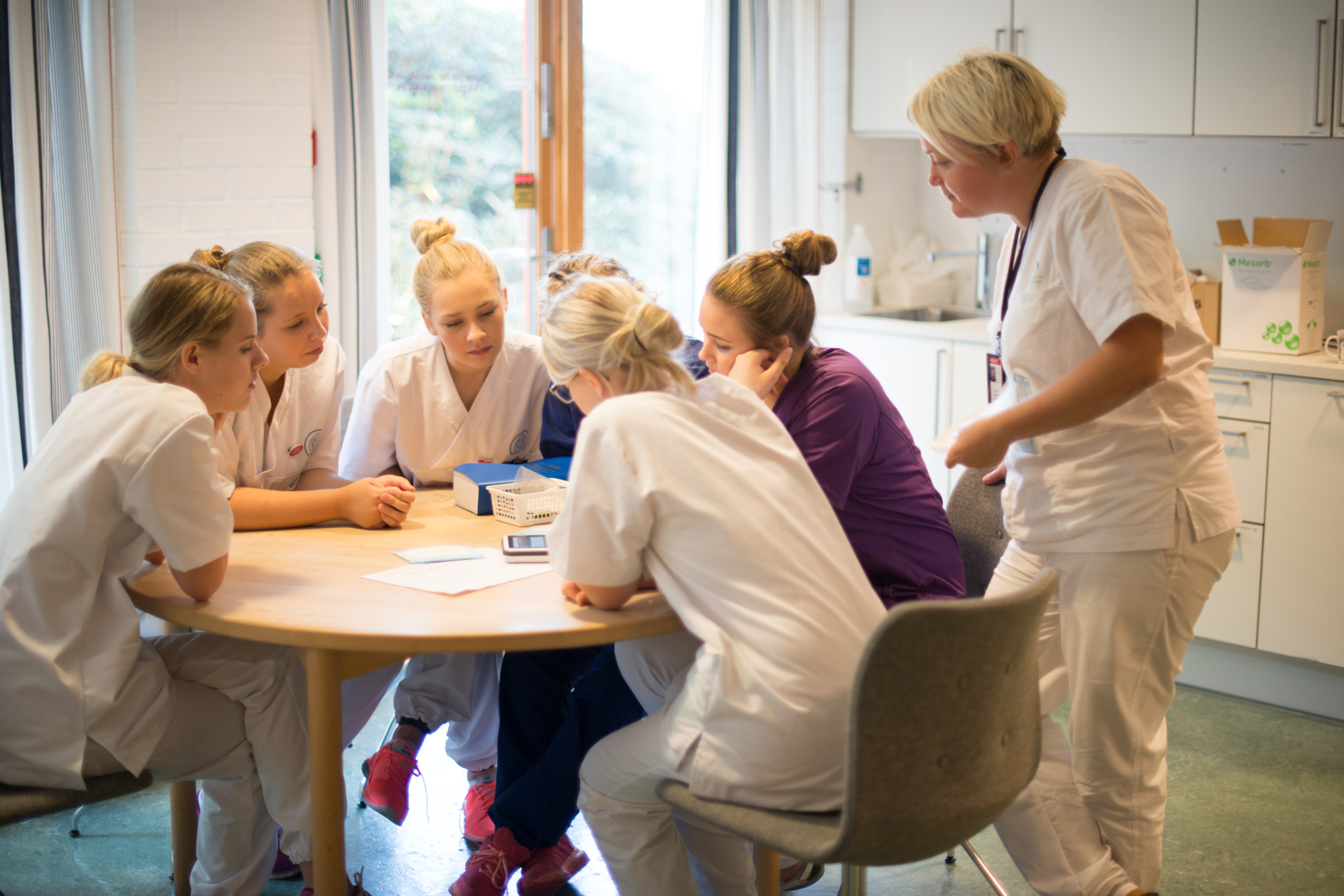
The aim of the study is to gain more insight into and knowledge about how nursing students experience developing their ability to reflect through the practical studies in nursing education and how clinical supervisors contribute to this development. The study also seeks to gain a better understanding of how developing students' ability to reflect is experienced from the point of view of clinical supervisors. The findings may be useful in a continuous assessment and development of the practical part of the nursing education.
The following research question will guide the project: How do nursing students develop their ability for reflection in their clinical studies and how do clinical supervisors contribute in this development?
The research problem will be explored through three qualitative sub-studies, and the project will result in an article-based thesis, including three publications in peer-reviewed journals.
PhD-Fellow: Bente Skogen
Supervisor: Associate Professor Kari Vevatne
Co-supervisor: Professor Emerita Ida Torunn Bjørk
Project period: 2018 - ongoing
Full project title: Nursing students and clinical supervisors experiences with nursing students’ development of reflection in their clinical studies in nursing
The importance of self-realization to remain in nursing
In this PhD-project, Linda Horne Mæland investigates the importance of self-realization for school nurses’ intention to remain in nursing.

Nursing shortage is an international and national challenge. In Norway one in five nurses leave their profession during the first ten years of practice and it is estimated that there will be a shortage of around 30.000 nurses and 600 public health nurses in 2035.
Nurses leave their profession for several reasons, e.g. workload, constraints, working hours, low salaries and limited professional career opportunities. To remain in nursing, it seems nurses need opportunities to realize themselves in focusing both on the patient and on their own personal values.
Self-realization for school nurses
It has been documented that public health nurses working as school nurses experience emotional concerns and lack of knowledge and resources to meet children and adolescents’ complex needs. As the only health professional continuously present in the school health service, school nurses experience challenges related to social and professional affiliation and complex nursing situations. Therefore, school nurses may find it demanding to deal with limited opportunities to realize oneself by focusing on both children and adolescents and themselves.
In recent years, the Norwegian government has allocated millions of Norwegian kroner to school health service. As a result, an increased number of public health nurses are working in school health service. Thus, it is timely to gain a deeper understanding of what is important for public health nurses to self-realize, particularly because more self-oriented moral notions have been found to be of value in contemporary Western societies. Hence, this project aims to explore the significance of self-realization for school nurses’ intention to remain in school health service.
15 school nurses has participated
This project’s purpose is to describe and interpret the importance of self-realization for nurses’ intention to remain in nursing. The project will focus on self-realization related to school nurses’ self-understanding. The research questions will be explored by asking school nurses to describe their everyday nursing experience.
During spring and summer 2018, data has been collected from fifteen public health nurses with a current position as school nurse within the Norwegian school health service. The data consist of one written text and two in-depth interviews with each participant. This material will be analysed by a phenomenological-hermeneutical method inspired by Lindseth and Norberg (2004).
PhD-Fellow: Linda Horne Mæland
Supervisor: Associate Professor Margareth Kristoffersen
Co-supervisor: Professor Bjørg Frøysland Oftedal
Project period: 2018 - 2024
Linda Horne Mæland defended her thesis May 31 2024. The thesis is available online.
Death in the multiculturally staffed nursing homes
In this PhD-project, Anne Kristine Ådland conducts an ethnographic field study of how health professionals in multicultural staff communities deal with meeting death in nursing homes.

Ådland uses a psycho-social approach to investigate how health professionals in multicultural staff communities deal with meeting death in nursing homes, and what institutional procedures, structures and rituals support or undermine communication about personal and existential experiences when staff meet death in the nursing home.
Nursing homes have become an important setting for end of life care in Norway. Approximately 50% of all registered deaths in Norway occur today in nursing homes. Due to globalization, and migration from Europe, Asia, and Africa, Norwegian nursing homes have increasingly become a multicultural workplace. Yet, research on how health professionals in multicultural staff communities react to and cope with death remains scarce. Therefore, this project is an important contribution to the development of knowledge and understanding of how death is approached in multicultural staff communities in nursing homes in Norway, which will have consequences for the welfare of employees and for how dying patients and their families experience the last stages of life.
The study has a qualitative, exploratory-descriptive design, based on ethnographic fieldwork and narrative interviews with multicultural nursing home staff at two nursing homes for six months. A psycho-social approach in this project is taken to mean a focus on the relationship between intra- and interpersonal, institutional and societal dimensions in human relations and working practices, and what implications the relationship between these dimensions has for how health professionals in multicultural staff communities deal with meeting death in nursing homes.
The PhD project will result in an article-based thesis, including three publications in peer-reviewed journals.
PhD-Fellow: Anne Kristine Ådland
Supervisor: Professor Ellen Ramvi (University of Stavanger)
Co-supervisors: Professor Marta Høyland Lavik (Stavanger University Hospital/VID) and Post-doctoral Fellow Birgitta Haga Gripsrud (University of Stavanger)
Project period: 2017 - ongoing
This PhD-project is part of Work Package 4 in Multicultural workforce in nursing homes: Contemporary challenges, opportunities and potentials for the future in the Norwegian municipal care sector, MULTICARE, funded by the Research Council of Norway.
Between Health Policy and Care Practice in the Cancer Patient Pathway
The aim of this PhD-project is to develop experience-near knowledge about psychosocial care needs in a cancer patient pathway, in the light of recent changes in public healthcare policy in Norway.
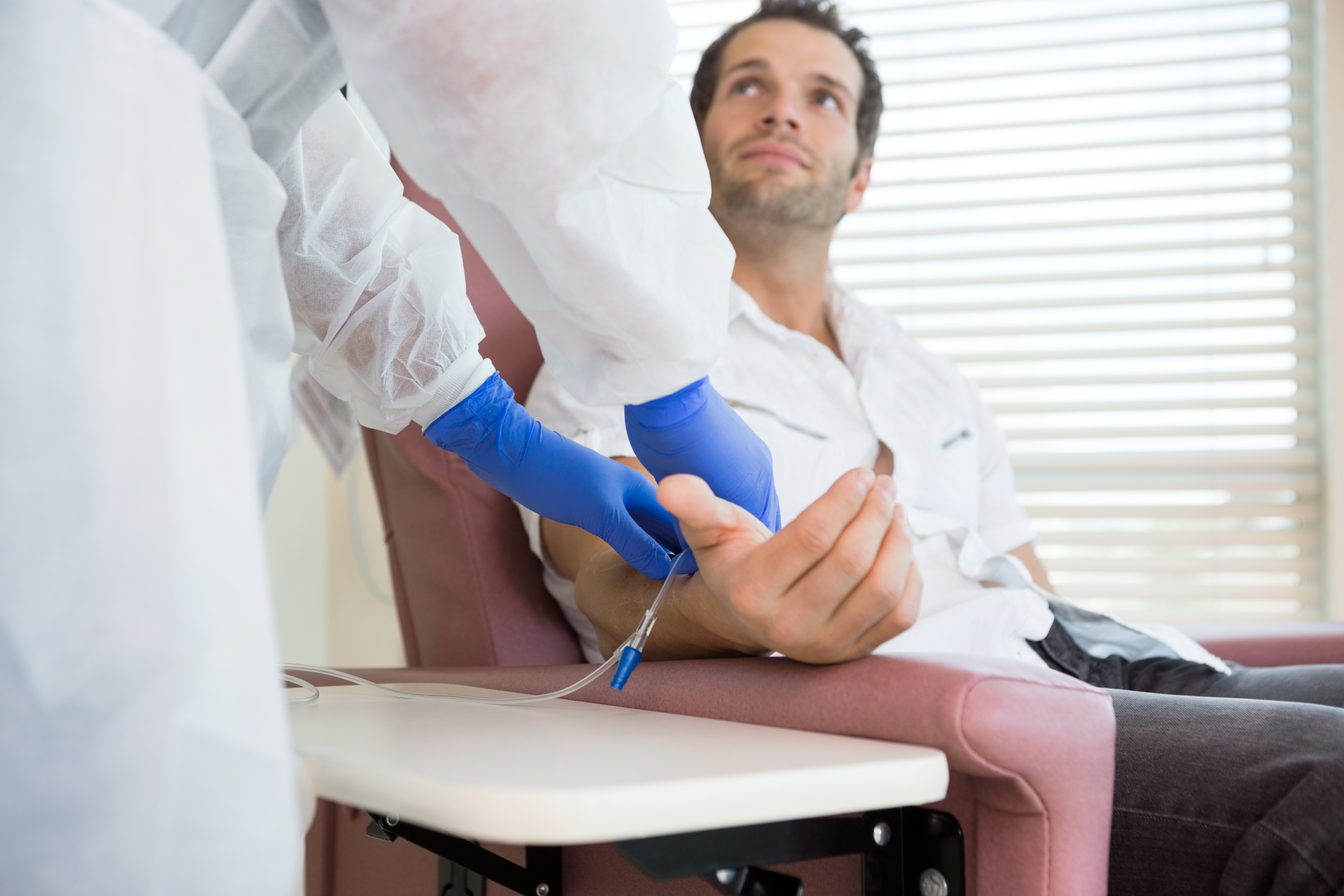
Due to an expanding ageing population and more effective medical treatment, the number of persons living with cancer is increasing, with a correspondingly increased demand for cancer care. Cancer patients and survivors often have complex and prolonged care needs. The prevalence of psychological and physical late effects among this population is increasing.
Standardized clinical pathways have emerged at a time when public healthcare services are under increasing pressure to cut costs and improve efficiency. Simultaneously there is a shift in recent policy documents, which heralds an unprecedented focus on user-oriented, patient-centered care and improved quality in public health care. How or whether these policy shifts are compatible in care practice remains to be seen. According to the national health strategy in Norway the question “what matters to you?” is to guide the future care delivery. However, there is a knowledge deficit in this area, as research is sparse concerning patients’ experiences of cancer care within the current health care context.
This PhD-project utilizes a qualitative psychosocial approach to investigate cancer patients’ experience, as situated in the intersection between health care policy and care practice. The project relies on a biographical narrative interpretive method (BNIM) to generate thick descriptions and in-depth interpretations of cancer patients’ experiences in a patient pathway, to provide deeper understanding of psychosocial aspects of cancer care. Experience-near knowledge may suggest ways to develop and improve comprehensive cancer care, which will be of benefit to future cancer patients, next of kin and healthcare professionals, as well as policy makers.
PhD-Fellow: Hanna Baardsen
Main supervisor Birgitta Haga Gripsrud, PhD, associate professor, UiS
Co-supervisor Kjetil Moen, PhD, associate professor II, UiS
Co-supervisor: Alastair Roy, Professor, University of Central Lancashire
Registered nurses' leadership in the field of home care
The purpose of this PhD project is to study nurses' leadership and management in nursing in the field of home care.

The PhD project will address registered nurses’ leadership practices in the field of home care. That is, the theme of the project is the informal leadership practices performed by registered nurses who have no formal position as leaders or education as leaders. In daily nursing care, based on his or her professional autonomy, each registered nurse leads practices in direct and indirect nursing, according to professional and ethical standards, focusing on the individual patient's need for medical treatment and collaboration with followers to meet the aim of person-centered care. In the last 50 years, the literature has described the characteristics of nursing care. This has been an individual and direct nursing “at the patient’s bedside” approach, an approach that encompasses patients’ experiences of health and illness. However, nurses have to deal with informal leadership in complex organizations’ context involving an indirect nursing approach to optimize person-centred care in home care. Thus, the aim of this PhD project is to expand the knowledge of leadership practices in nursing care.
The knowledge contribution will provide a better understanding of registered nurses’ leadership practices in the field of home care. In the long term, developing and performing leadership practices is crucial for registered nurses who are practicing high - quality person-centred care.
This PhD project has an exploratory qualitative design based on observation, individual interviews and focus group interviews with registered nursers in home care. The project rests on the theoretical assumptions that human beings make sense of experiences through constructions of meaning and that actions are embedded in social practices where meaning is constructed in the interaction among human beings, institutions and discourses.
The PhD project will result in an article-based thesis, including three publications in peer-reviewed journals.
Main supervisor: Assoc. Professor Margareth Kristoffersen (University of Stavanger)
Co-supervisor: Professor Trude Furunes (University of Stavanger )
Phd Fellow: Malene Søiland
Project period: 2020 - 2024







